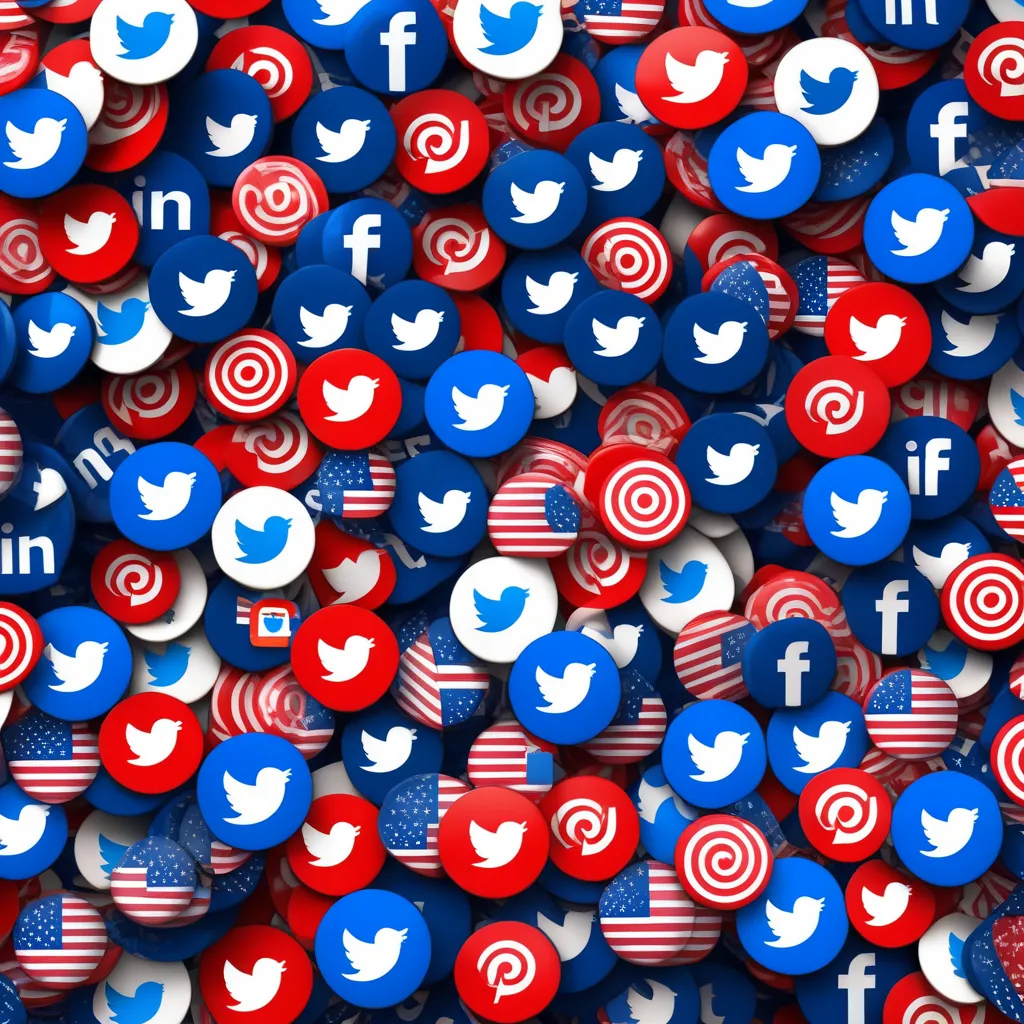The Role of Social Media in Modern Political Campaigns
In an era where information flows at the speed of light and connectivity is at our fingertips, it's no surprise that social media has become a powerhouse in modern political campaigns. Gone are the days of relying solely on traditional campaign strategies; today, political candidates harness the immense reach and influence of social media to connect with voters, share their messages, and win elections. Let's dive into the world of politics and explore the ever-evolving role of social media in shaping the political landscape.

Amplifying Campaign Messages
The Power of Viral Content
Social media platforms like Twitter, Facebook, and Instagram allow political candidates to quickly disseminate their messages to a vast audience. A well-crafted tweet or post can go viral, reaching millions of users within hours. This viral potential can be a game-changer in shaping public opinion.
Personal Journey: Melissa's Grassroots Campaign
Melissa, a friend of mine, decided to run for a local office. With limited campaign funds, she turned to social media to get her message out. Melissa's team created engaging content that resonated with the community. Her posts garnered thousands of shares, and she saw a surge in support from people who had never been involved in local politics before. Melissa's experience highlighted how social media can level the playing field for grassroots candidates.
Real-Time Engagement
Direct Communication with Voters
Social media allows political candidates to engage directly with voters in real-time. They can answer questions, address concerns, and showcase their authenticity. This direct interaction fosters a sense of connection and trust between candidates and their supporters.
Transparency and Accountability
In an age where transparency is highly valued, social media provides a platform for politicians to be held accountable. Citizens can scrutinize candidates' statements, track their policy positions over time, and fact-check claims—all with a few clicks.
Targeted Campaigning
Precision in Advertising
Social media platforms offer powerful tools for targeted advertising. Campaigns can tailor their messages to specific demographics, ensuring that their content reaches the right people. This precision saves resources and maximizes impact.
Analyzing Voter Data
By analyzing user data, campaigns gain insights into voter preferences and behaviors. This data-driven approach allows for the customization of campaign strategies, from crafting tailored messages to selecting the most effective outreach methods.
Mobilizing the youth Vote
Meeting Young Voters Where They Are
Young voters, often labeled as apathetic, can be hard to reach through traditional campaign methods. Social media, however, is the perfect platform to engage with this demographic. Memes, videos, and interactive content can captivate and mobilize younger voters.
Personal Experience: John's First Vote
My nephew, John, was a disengaged potential voter until he stumbled upon a video on social media that explained the importance of civic participation. Inspired, he registered to vote for the first time. This anecdote underscores how social media can play a pivotal role in awakening political awareness among the younger generation.
Challenges and Ethical Concerns
Misinformation and Polarization
The rapid spread of misinformation and the polarization of political discourse are significant challenges in the social media era. False information can go viral, causing confusion and division among voters.
Protecting User Data
The collection and use of user data for political targeting have raised ethical concerns. Striking a balance between effective campaigning and safeguarding user privacy remains a critical issue.
Conclusion
Social media has undeniably revolutionized the way political campaigns are conducted. It has the power to amplify campaign messages, foster real-time engagement, enable targeted campaigning, and mobilize previously untapped voter demographics. However, it also presents challenges such as the spread of misinformation and concerns about data privacy. As we navigate the evolving landscape of modern politics, the role of social media will continue to be a central and complex factor.

No comments:
Post a Comment